Karachi Literature Festival: Talking art
Art, here, is a medium that not only remains out of sight, but also out of mind for the majority of the public.
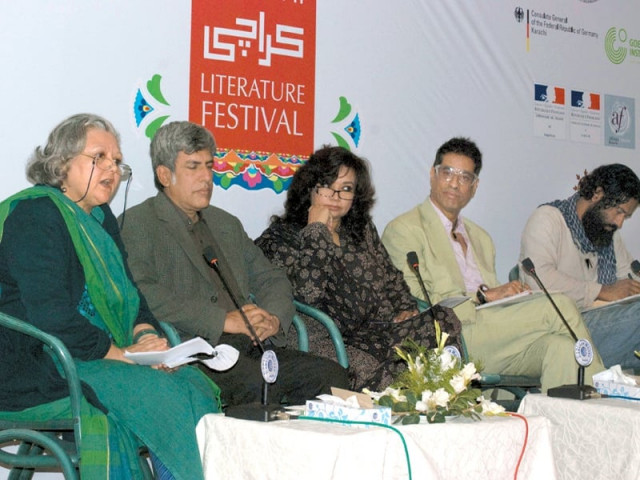
Karachi Literature Festival: Talking art
There is a phrase “out of sight, out of mind”, and nowhere is this more relevant than for the history of art in the subcontinent. Here art is a medium that not only remains out of sight, but also out of mind for the majority of the public. The few scripts that do exist are largely from the eyes and pens of western invaders.
This was the major sticking point presented by panellists during a session on art history and its relevance during the Karachi Literature Festival (KLF) on February 11 which was moderated by art critic Nilofer Farrukh with art history teachers Taimur Suri (Islamic Art History at the Oxford University, Art History Instructor at Indus Valley School of Art and Architecture and the Shaheed Zulfiqar Ali Bhutto Institute of Science and Technology) and Rizwanullah Khan (Art History Instructor since 1997, currently at Department of Visual Studies, University of Karachi), Amin Gulgee (artist, art history major Harvard University) and Dr Asma Ibrahim (archaeologist and Director State Bank Museum).
“Is art history relevant? More important for me is the question that who writes art history? Who is the audience — artists or the general public?”,asked Amin Gulgee, adding that much of our art history is written with an oriental perspective — “a book on the Shalimar Gardens by a western author concluded that it was all ‘bah’!”
Art history in the classroom
However, the failings of art history in our region extend further, stemming from institutions and academia of and related to art. Rizwanullah Khan said that the problem was two pronged; a narrow focus from the teaching perspective which limits itself to antiquated books restricted to progression of visual styles and secondly, the art students. “Students are not prepared, they have little knowledge of geography and cultural history, paired with poor vocabulary,” Khan lamented. To add to the problem, he said that these students had little time to reflect on the little they did manage to read.
Taimur Suri reminded the audience that the study of art history was important since it was a human phenomenon. However many others like him, who trained in the West, run into cultural barriers when in Pakistan since the West “institutionalises art, which is rigid for our form of art”. Suri added that their training and the prevalent Western format of education relied heavily on hard facts, “it is very difficult to talk facts to students here due to the different format of our art.”
A member of the crowd asked why is art history not made compulsory from primary school? Dr Asma Ibrahim, a member of the panel of the Higher Education Commission which held sessions on revising curricula, stated, “When we raise this point of teaching art history, they ask us where are the teachers to do that? “
Suri, also a panel member, offered a little more insight; “They are fine with teaching history, but when it gets to teaching art history, some say it’s against Islam — religion creeps in somewhere, I don’t know why.”
Durraiya Kazi, an artist and the head of the Visual Studies department in Karachi University, was a member of the audience and stated that as per her findings there was art curricula at all levels and programmes were offered even at the matriculation level, but the pitfall is that “schools and parents are simply not interested”.
Published in The Express Tribune, February 12th, 2012.

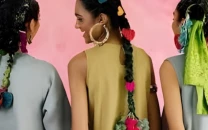
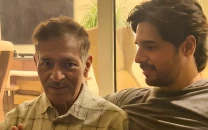

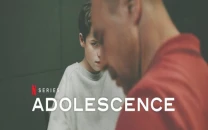
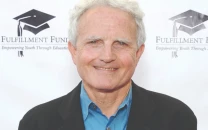
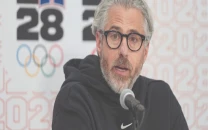












COMMENTS
Comments are moderated and generally will be posted if they are on-topic and not abusive.
For more information, please see our Comments FAQ